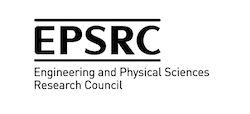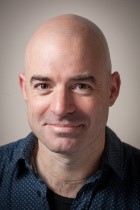
Dr James Dyke.


The EPSRC recognises a priority need for training in the deployment of computational resources to understand complex target systems. Alongside interdisciplinarity and high-throughput experimentation, simulation modelling is emerging as the vital tool for addressing today's most pressing research questions.
Whether we consider food security, infrastructural resilience, climate change, health care, security, or financial stability, society is facing key challenges that combine scale, connectivity, adaptive dynamics, and criticality. Meeting these challenges requires that we learn to control, support, manage or otherwise cope with large-scale complex adaptive systems that transcend traditional disciplinary boundaries. Complex systems simulation is a key scientific tool for doing so. Consequently, research training in complex systems simulation is direct preparation for being an ‘agent for change’ in the world.
Students from the DTC programme are afforded the advantage of considerable technical and generic skills training allowing to make more effective use of the research component of their PhDs and orient themselves within their research field. The belief is that a practical PhD training programme must reside in the context of live research challenges within a robust academic research environment. It must address issues of technical implementation and how to exploit state of the art high-performance computing, but also inculcate broad methodological sophistication. Particularly central, is the command of the interdependent relationship between simulation, mathematical modelling, and experimentation, as is a grasp of the different strengths and weaknesses of simulation modelling. In achieving this, the ICSS has generated a community of doctoral graduates equipped to act as research leaders in applying complex systems simulation to the most pressing scientific and engineering challenges of the 21st century.
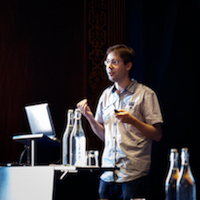
"The DTC provided the unique opportunity to try new disciplines, work across boundaries, find a truly well-matched supervisor and thus find a successful PhD." - Ben Lowe, Cohort Four, AI, data science, machine learning, psychometrics.
The first year consists of three 60 credit semesters. The first semester is a taught introduction to fundamental concepts, tools and methodologies. The second is a taught component, of optional modules selected by the student to cover their particular problem domain, e.g., ecology, and approaches, e.g., numerical methods. Finally, the third semester is a summer research project tailored to the needs and interests of each student. Each student receives a tutor for guidance during these semesters.
Only the students that achieve excellence in year one may progress to the three-year research component. During this period, they complete a piece of independent doctoral research equivalent to a standard UK PhD, under the guidance of two supervisors. The separate student-tutor relationship remains open during this time.
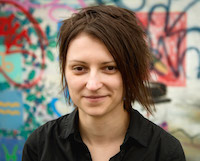
"The first thing that struck me when I joined the DTC was how social it was. Being in a cohort with about 20 different people from very diverse backgrounds was definitely a positive experience." - Lenka Pitonakova, Cohort Four, Currently Research Associate in Applied Mathematics and Computer Science at the University of Bristol.
History & aims of systems science; natural & engineered complexity; core concepts: complexity, emergence, adaptation; complex adaptive systems; interdisciplinary issues.
Models, theories & experiments; what are computational models; issues in designing, implementing, visualising and analysing computational models; what makes a model good?
Dynamical systems analysis; networks science; statistical mechanics; scale-invariance; self-organised criticality; renormalization, critical phenomena; percolation; bifurcation theory.
Hypothesis testing; inferential statistics; statistical significance, confidence, and power; information criterion approaches; detecting chaos; fitting power laws.
Data structures & algorithms; scientific programming; data visualisation; object-oriented design; software management; simulation & modelling; case studies; introdution to distributed computing.
best practice in science and engineering; science methodology; intellectual property, ethics; literature search and citation; the research process; presentation skills; technical writing; peer review.
The summer project is for students to engage with two supervisors (one simulation/complexity expert, one domain specialist), plus an industrial advisor where appropriate. The project focuses on applying simulation techniques to a complexity science domain with the aim of assessing aptitude for individual research. However, while the project domain is likely the target of the student's subsequent PhD research, some student used this effort to explore other complexity interests stirred up during the taught components. Students were required to score above 65% in their Summer research projects to progress to the full PhD programme
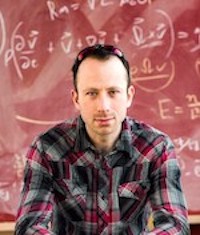
"The DTC had a tremendous influence on my career choices and research outlook. Being trained in complexity science and being introduced to the lense/perspective of complexity opened my eyes to a huge range of phenomena, disciplines, scientific problems and ideas. Thinking in terms of emergence and networks is key to understanding many of the most challenging problems in modern science so I will always be grateful that I was able to be part of the DTC, since emergence is now ingrained in my thinking." - Stuart Bartlet, Cohort One, currently a postdoc in the Division of Geological and Planetary Sciences at California Institute of Technology.
The choice of project and supervisor team is the student’s (with guidance from their tutor). In some cases, a student arrives with their specific ideas, in other cases, these ideas develop during year one. Whilst students were given a great deal of scope to guide their own projects, these were subject to the approval of DTC management. Before the end of the taught first year all students submit an outline summary of their project which was checked for academic quality and suitability to the DTC remit. The stipulation is to have one complexity expert on the supervision team. However, students are encouraged to build interdisciplinary teams through a second non-complexity supervisor. A third industry partner may also join the supervision team
Running parallel with the doctoral research, students learn best practice in science and engineering and critical academic skills. Also, there are opportunities for an industrial or research secondment
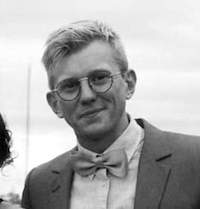
"My time at the DTC allowed me the space and support to really develop my ideas around the cyclic relationship between gathering data and modelling the natural world." - Joe Scutt-Phillips, Cohort Two, Advisor to The Pacific Community NGO in Nouméa, New Caledonia.
At the conclusion of their PhD studies, the best ICSS students apply for ICSS "follow-on fellowships" to provide support for up to a year to translate PhD research into publications and applications, and to strategically locate a post-doc position or career path.
"I am exceptionally grateful for all the opportunities provided by the ICSS, which have enabled me to develop a passion for computational modelling and machine learning and also pursue a career creating ways for the wider public community to directly benefit from the powerful advances of our digital age." - Frank Longford, Cohort Five, EPSRC Doctoral Prize Research Fellow
The ICSS allowed me to develop broad scientific knowledge, exploring mathematical descriptions of the natural world, as well the opportunity to specialise in computational simulation techniques. It also supported me to conduct a 2-month research visit to Brazil in 2015, during which time he developed a postdoctoral research proposal that was successfully funded by Southampton's EPSRC Doctoral Prize Award in 2018. This project allowed me to combine my computational simulation experience with cutting-edge machine learning techniques in order to better understand how to measure the progression of cancer in medical images of patient biopsies.
Whilst completing my postdoctoral research, I was accepted onto the ASI Data Science Fellowship XII, a 8-week long programme based in London during Sep-Oct 2018 that included a 6-week data science project at one of the ASI's collaborating partners. For this, I worked with the research agency Forensic Architecture to develop automated online media classification systems, aiding their investigation team's ability to source evidence of war crimes and humanitarian rights abuses.

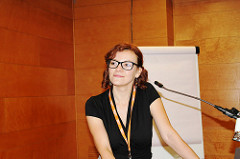
The EPSRC Doctoral Prize Fellowship represents an amazing opportunity to increase the impact of my PhD research. This fellowship facilitates translation of my PhD studies, which were rather theoretical (e.g. computational models of brain clearance), into clinical studies of fluid drainage from the human brain. During this fellowship, I have been collaborating with neuroradiologists and medical physicists from a medical centre in The Netherlands and also with a surgical team from Southampton General Hospital, in order to identify novel imaging biomarkers of brain clearance. The highlights of this fellowship were being in a 7T MRI machine and attending open heart surgery for an observational study. These collaborations have the potential of becoming long-term interdisciplinary projects, so together with my collaborators, we are looking into securing further funding.

"Reflecting on the DTC experience, I feel very honoured for meeting many amazing people, even role models, during my years at DTC. I am grateful for the social events organised by DTC because they offered a feeling of belonging. I am even more grateful for all the financial support provided by DTC, as it allowed me to attend international conferences/meetings in my research field, which led to valuable international collaborations. Subsequently, these collaborations helped shape my future career, including my post-doc at University of Auckland, NZ, starting in 2019.
Thank you very much DTC, always in my heart" - Roxana Aldea, Cohort Five, EPSRC Doctoral Prize Research Fellow
